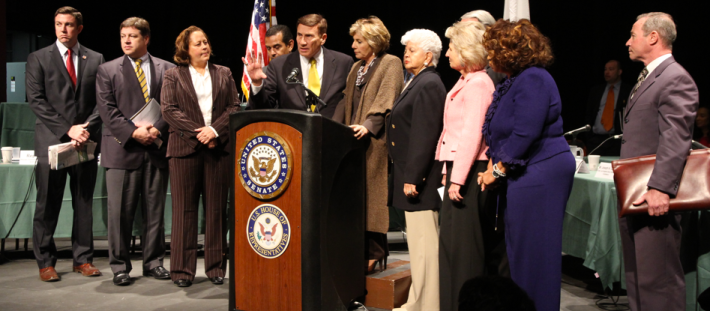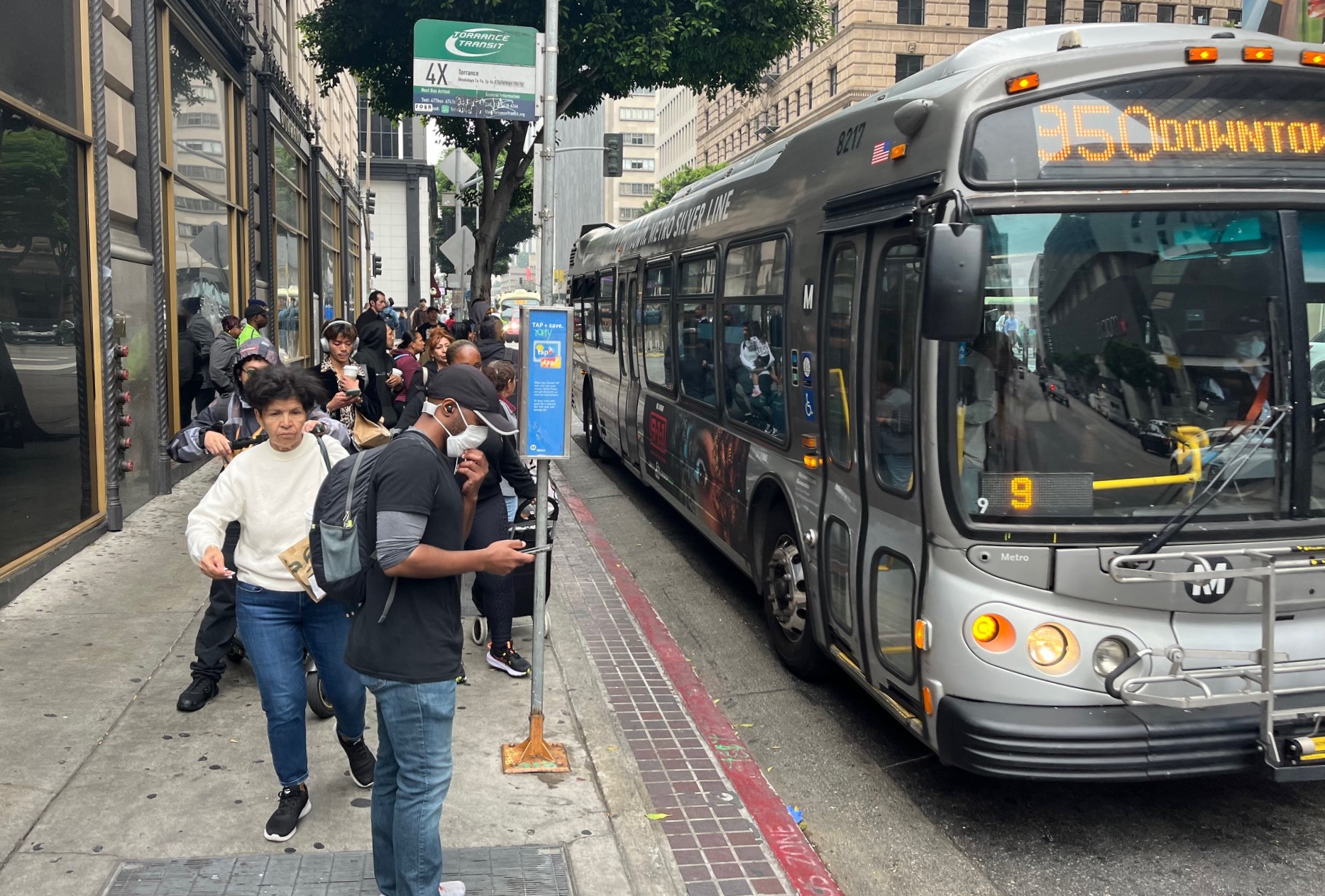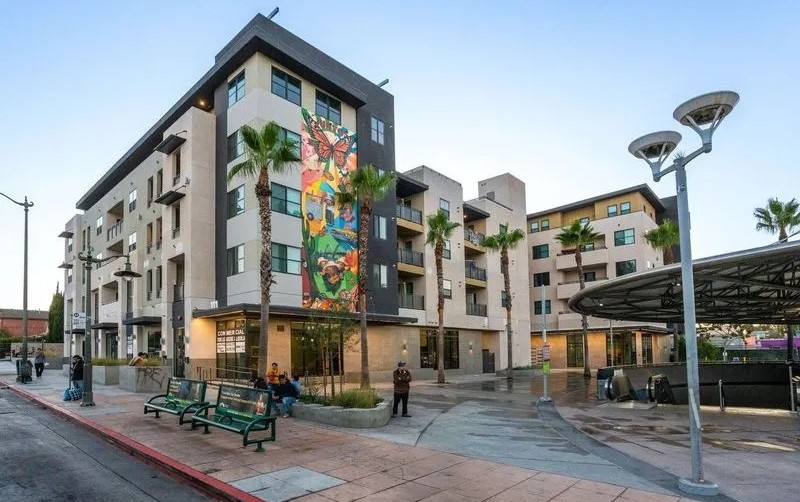
Much has been made of the proposal to reauthorize the Federal Transportation Trust Fund that was submitted by Republican Congressman John Mica last week. The Mica Bill has been criticized by Democrats who feel left out of the proposal, advocates for green transportation options who bristle at the proposed elimination of the bicycle and pedestrian programs and the construction industry shocked by dramatic cuts to an industry that is already seeing higher-than-average unemployment in an era where the unemployment rate is beyond average.
To paint an even uglier picture, SF Streetsblog broke down the bad news for transit agencies and cities throughout California while Capitol Hill Streetsblog just called it a "disaster for transit." But there is a surprise winner in the legislation: Los Angeles' 30/10 plan, aka America Fast Forward. This plan would allow Los Angeles to build its Measure R transit projects, currently slated to take three decades, to complete their planning, environmental studies and construction in the next decade. The plan was rebranded because it provides benefits for all areas of the country willing to shoulder a major chunk of the burden of building their own transit.
Back when Mica and California Senator Barbara Boxer held a field hearing on reauthorization back in February, the Congressman was pressed by Mayor Villaraigosa to dramatically expand the Transportation Infrastructure Finance and Innovation Act (TIFIA) loan program up to $350 million a year which would be a dramatic increase from the $110 million a year funding level it is currently at. While the Mica Bill cuts spending by nearly 33% from the federal government, this loan program would explode to $1 billion a year, nearly triple what Villaraigosa proposed just over four months ago. It's no wonder that while Democrats around the country have attacked the bill so much that Mica is publicly complaining about his treatment, Villaraigosa releases a statement praising Mica:
I know that Chairman Mica, who graciously co-hosted a transportation hearing in the City of Los Angeles earlier this year with Senator Barbara Boxer (D-CA), understands the scale and scope of the transportation and economic challenges facing all Americans.
Politically, it's a smart move for Villaraigosa to continue to position himself as the champion of transit expansion and stay out of the partisan fight occurring on the Hill. It's almost unthinkable that the legislation from Mica's Senate counterpart, California Senator Barbara Boxer, won't have at least a robust plan for America Fast Forward as the conservative Republican from Florida's plan. This way, regardless of who wins the Capitol Hill staring contest, Villaraigosa and 30/10 wins.
Which is not to say the fight to enshrine America Fast Forward into law is over, back in February Villaraigosa outlined five changes that would help Los Angeles County, and all areas that are proactively pushing transportation through self-taxation, build faster. The other four prongs are:
- Increasing the maximum percentage of the project allotment that TIFIA can fund. Currently, TIFIA will fund up to 80% of a project with no “added points” going towards proposal with a higher local match. Villaraigosa called for at least a 49% local match;
- Permitting the U.S. Department of Transportation (USDOT) to approve multiple related projects at the same time. In Los Angeles County, for example, this could mean loans for the entire suite of Measure R transit projects at once, as opposed to a line-by-line piecemeal approach;
- Allowing USDOT to grant up-front credits to projects and;
- Authorizing USDOT to lock-in interest rates for approved projects.
These four proposals were nowhere to be found in the Mica bill, so despite the increase in the TIFIA program, there are still a lot of other things that have to happen before Los Angeles can start breaking ground on the dozen transit projects that are waiting for Measure R dollars. It also provides an opening for Boxer, who probably wasn't thrilled that Villaraigosa is offering bi-partisan cover for a bill despised by Democrats on Capitol Hill, to position her bill as the best bill for transit and the best bill for Los Angeles' transit needs.




